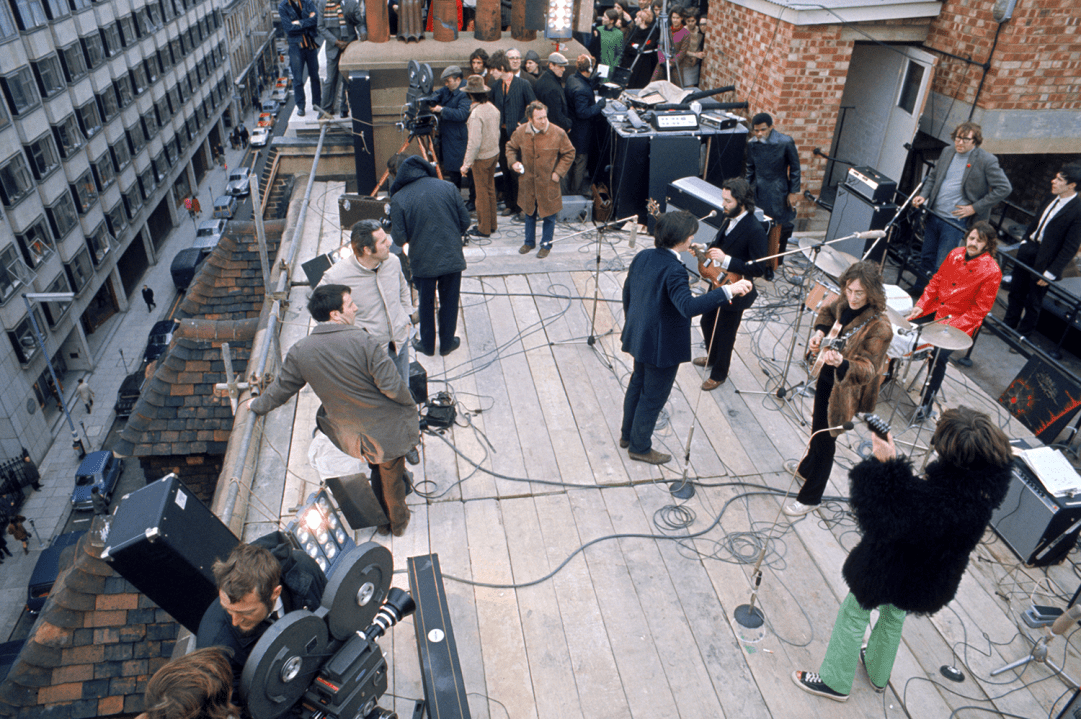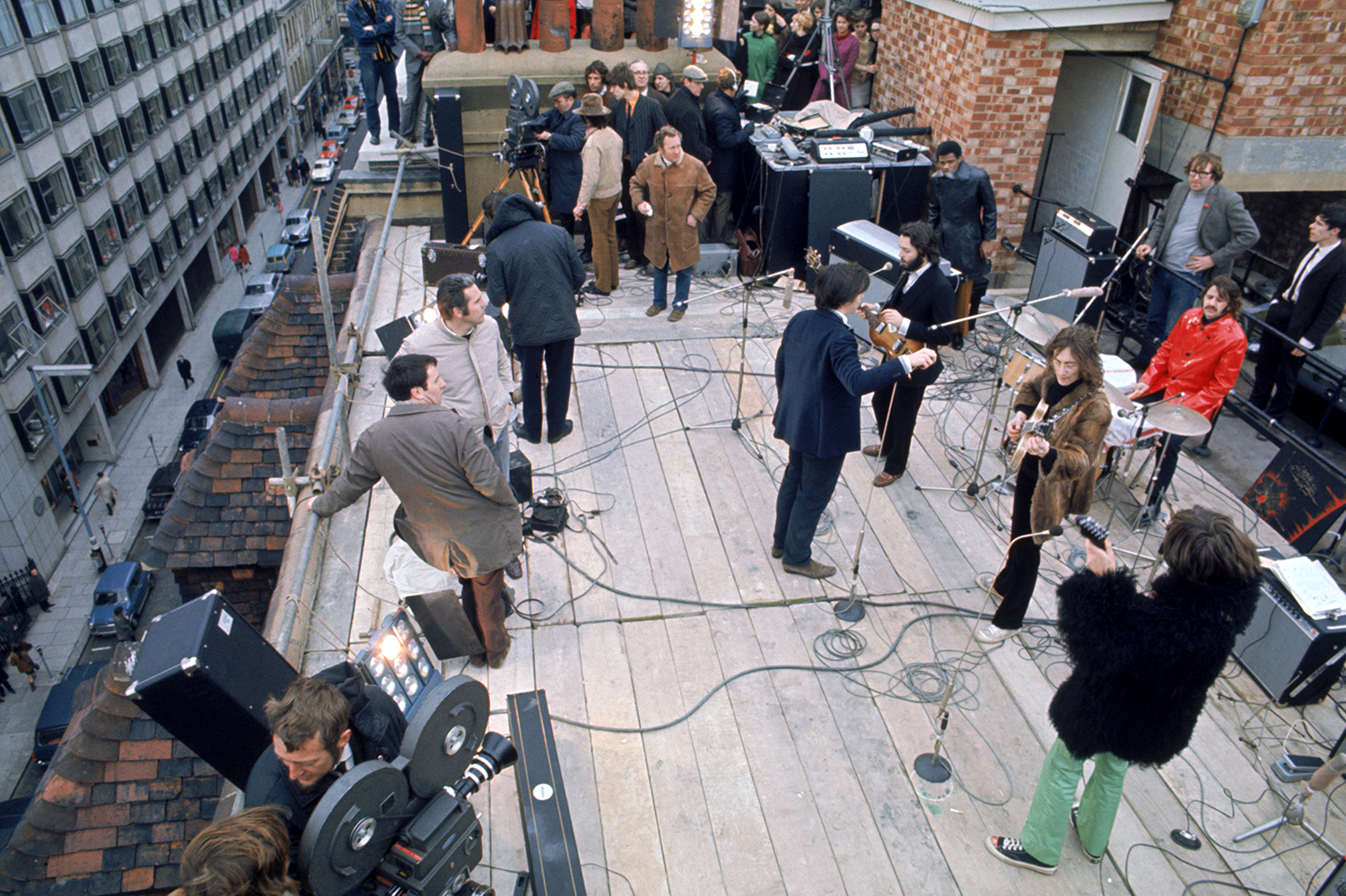Beatles lore has long held that the film Let It Be was a depressing portrait of the band falling apart. According to the same lore, that’s why Peter Jackson’s Get Back was such a revelation. Revisiting Michael Lindsay-Hogg’s footage of the group at work in January 1969, Jackson discovered there was far more joy around than anyone suspected – including the surviving Beatles.
Yoko remains a darkly brooding presence (the revisionism that sees her as benign needs its own revision)
All of which, it now turns out, only goes to prove the ever-reliable power of suggestion. I vaguely remember seeing Let It Be on TV in the 1970s, before it disappeared until last week – and finding it as miserable as I already knew everybody said it was. Except that it really isn’t. Having started watching the film on Disney+ in the mental equivalent of the brace position, I soon found myself successively giving way to relief, delight and a familiar sense of awe at all the Beatles achieved, and at how quickly they achieved it.
At one point, Paul looks back with amusement on the band’s time in India with the Maharishi, gently ribbing John for his uncharacteristic lack of scepticism. This long-vanished era, you then realise with a jolt, was less than a year before. Likewise, when the group exuberantly play rock’n’roll songs from their Hamburg days, it’s hard to believe that those days – the ones before they revolutionised pop music at least twice – were only as far from them as the Brexit referendum is from us.
Given the desperate (possibly pathetic) need among fans to believe that these four men – especially John and Paul – loved each other, we’re admittedly primed to pounce on every shared smile and obvious moment of togetherness. Even so, Let It Be definitely offers far more such smiles and moments than its gloomy reputation could ever have led us to expect.
So where did that reputation come from? Well, for one thing, the original film was a dark, grainy affair, which has since been cleaned up by Jackson, who’s also brightened up the music, especially in the still-thrilling rooftop concert where all four members are clearly having a blast. The main reason, though, was surely the unfortunate timing of its release: it came out a couple of weeks after the Beatles broke up in 1970, leaving a grieving world to scrutinise it for clues.
And, in fact, there are a few. Paul is sometimes both bossy and right: an always-annoying combination, particularly for George. Yoko, too, remains a darkly brooding presence. (The recent revisionism of her role as harmless, even benign, is perhaps due its own revision.) Nonetheless – and again in direct contradiction of the received wisdom – if you want to see some properly painful flashpoints, you’re better off watching Get Back.
Let It Be has an obvious flaw. The complete lack of context means that if you want to know why the band changes venues, why Billy Preston suddenly appears and, indeed, what’s going on and why, you’re also better off watching Get Back. Yet, as it stands – and to my considerable surprise – the film ended up reminding me of something Kurt Vonnegut wrote: ‘I say in speeches that a plausible mission for artists is to make people appreciate being alive… I am then asked if I know of any artists who pulled that off. I reply, “the Beatles did.”’
Those in search of a handy guide to class signifiers shouldn’t miss The Gathering, a thriller set in Merseyside, where the characters fall into two distinct groups. One has huge dogs, small houses, close families, broad accents and holidays in Prestatyn; the other huge wine glasses, large houses, competitive families, posh accents and holidays in Thailand. From this, you might also be able to tell who the goodies and baddies are.
Like many TV thrillers, The Gathering started with a dramatic incident followed by the caption ‘One Month Earlier’. In the dramatic incident, a teenage girl was apparently murdered. One month earlier she was revealed to be Kelly who, as her name indicates, was firmly in the Prestatyn category. Her best friend, however, was called Jessica – and therefore more used to Thailand. Their friendship then came under threat when Kelly was chosen for a national gymnastics squad and Jessica wasn’t: an outcome that Jessica’s mother had set out to remedy with full-on middle-class ruthlessness.
Meanwhile a chap named Julian, much given to languidly studying the menu in classy restaurants, embarked on a weirdly vicious vendetta against Kelly’s widowed father. Why, we don’t yet know. Then again, there’s much we don’t yet know after two episodes of The Gathering – which is where it rather comes into its own. The class element may be wildly unsubtle, but the plotting is undeniably strong. Any number of intriguing questions have been raised, among them one well-known to TV viewers: is it worth sticking with another so-so drama in order to find out what happened? Irritatingly, I’m really not sure.






Comments